Search
Search Results
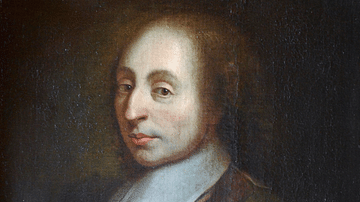
Definition
Blaise Pascal
Blaise Pascal (1623-1662) was a French scientist, mathematician, and philosopher whose work influenced both the Scientific Revolution and later European thought. Pascal is known for his practical achievements in science, such as a calculating...
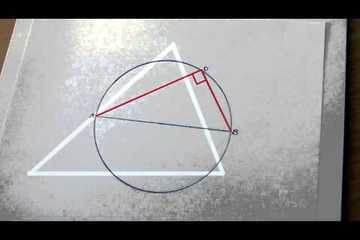
Video
Thales' Theorem
The powerful procedures possible with modern mathematics are rooted in logic that began thousands of years ago. Thales' Theorem demonstrates one style of early mathematical logic, a logic that is relevant and important today.
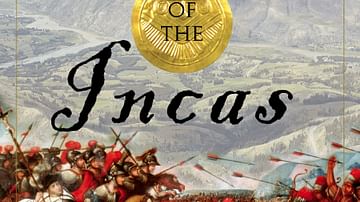
Interview
Interview: The Last Days of the Incas (Kim MacQuarrie)
How did a mere 167 Spaniards conquer an empire of 10 million people? The Spanish were outnumbered 200-to-1 yet they were able to seize the Inca capital, Cuzco, and dispose of the Inca ruler within only a year. Kim MacQuarrie's The Last Days...
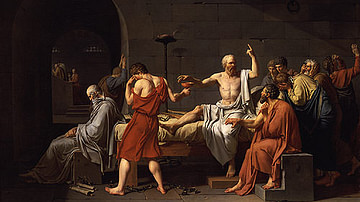
Article
Plato's Greater, Better World in The Last Days of Socrates
The Last Days of Socrates is a modern-day title for the collection of four Socratic dialogues by the Greek philosopher Plato – the Euthyphro, Apology, Crito, and Phaedo – telling the story of the trial, imprisonment, and death of Socrates...
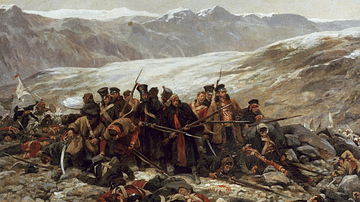
Image
The Last Stand of the Retreat from Kabul
An 1898 painting by William Barnes Wollen, 'The Last Stand', depicting the last stand of the British East India Company's disastrous Retreat from Kabul, 1842.

Article
The Pythagorean Theorem: The Way of Truth
Pythagoras (569-475 BC) is recognized as the world's first mathematician. He was born on the island of Samos and was thought to study with Thales and Anaximander (recognized as the first western philosophers). Pythagoras believed that...
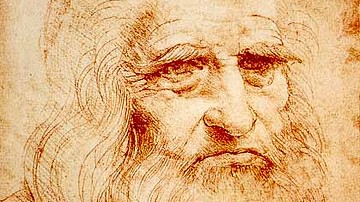
Definition
Leonardo da Vinci
Leonardo da Vinci (1452-1519) was an Italian Renaissance artist, architect, engineer, and scientist. He is renowned for his ability to observe and capture nature, scientific phenomena, and human emotions in all media. Leonardo’s innovative...

Definition
Gisela of France
Gisela of France was a legendary 10th-century CE Francian princess, who, according to tradition, was married off to Viking leader Rollo of Normandy. Her name, Gisela or Gisla, comes from an Old German word meaning "to pledge", the...
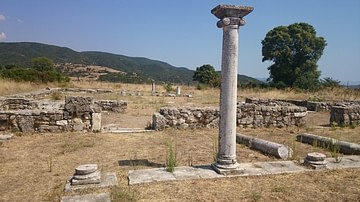
Definition
Amphipolis
Amphipolis, located on a plain in northern Macedonia near Mt. Pangaion and the river Strymon, was an Athenian colony founded c. 437 BCE on the older Thracian site of Ennea Hodoi. Thucydides relates that the Athenian general Hagnon so named...

Definition
Eucratidia
Eucratidia was a Greek town in Bactria, one of the easternmost area ever controlled by the Greeks, located at the modern site of Aï Khanum in North-Eastern Afghanistan. The history of this city is still rather unknown, but it seems that...